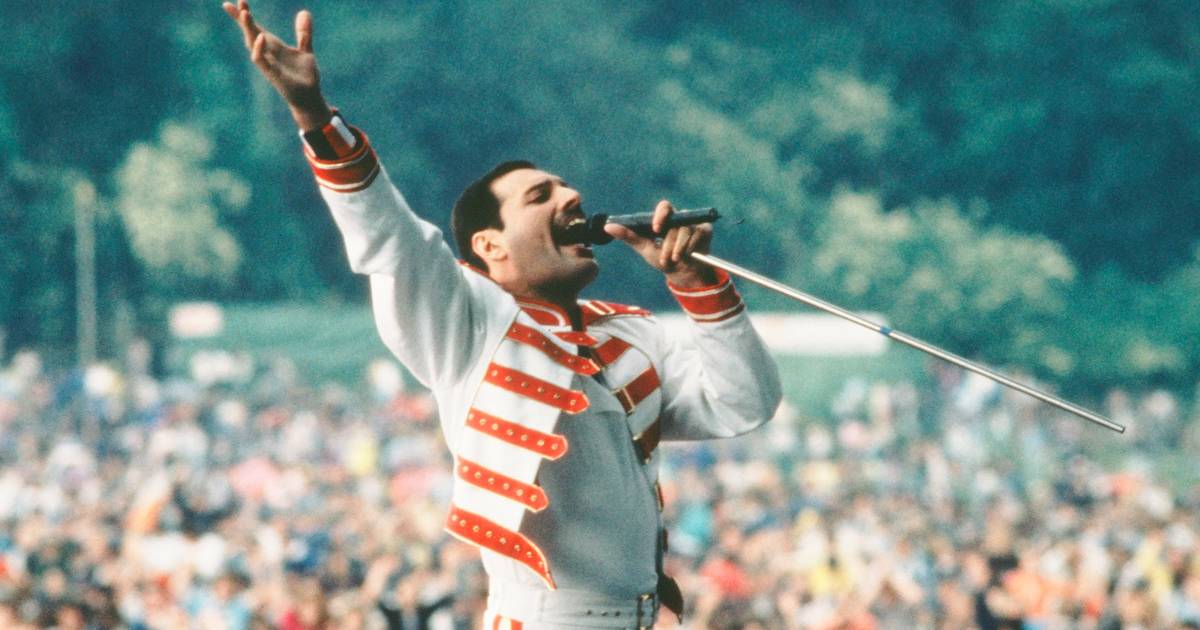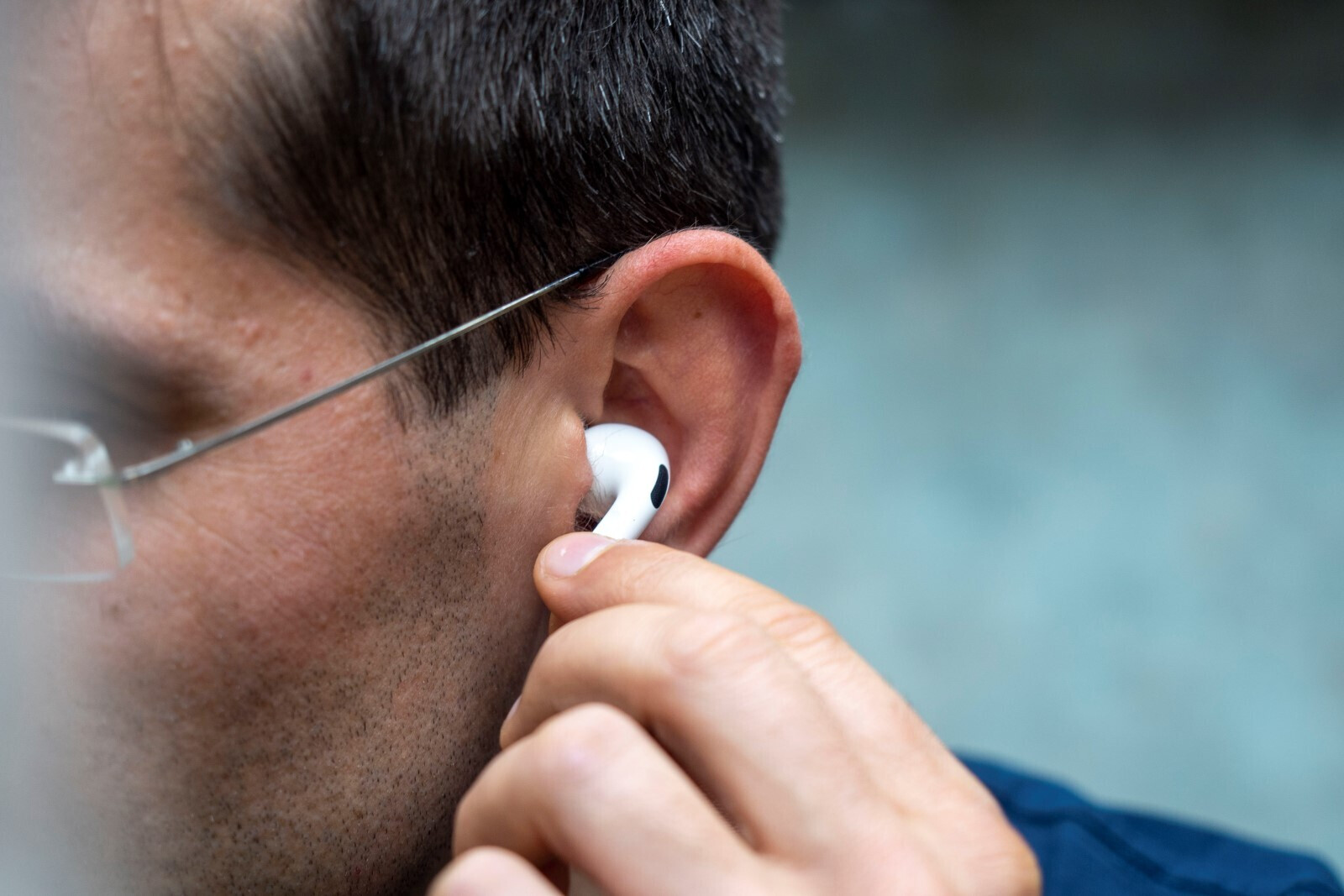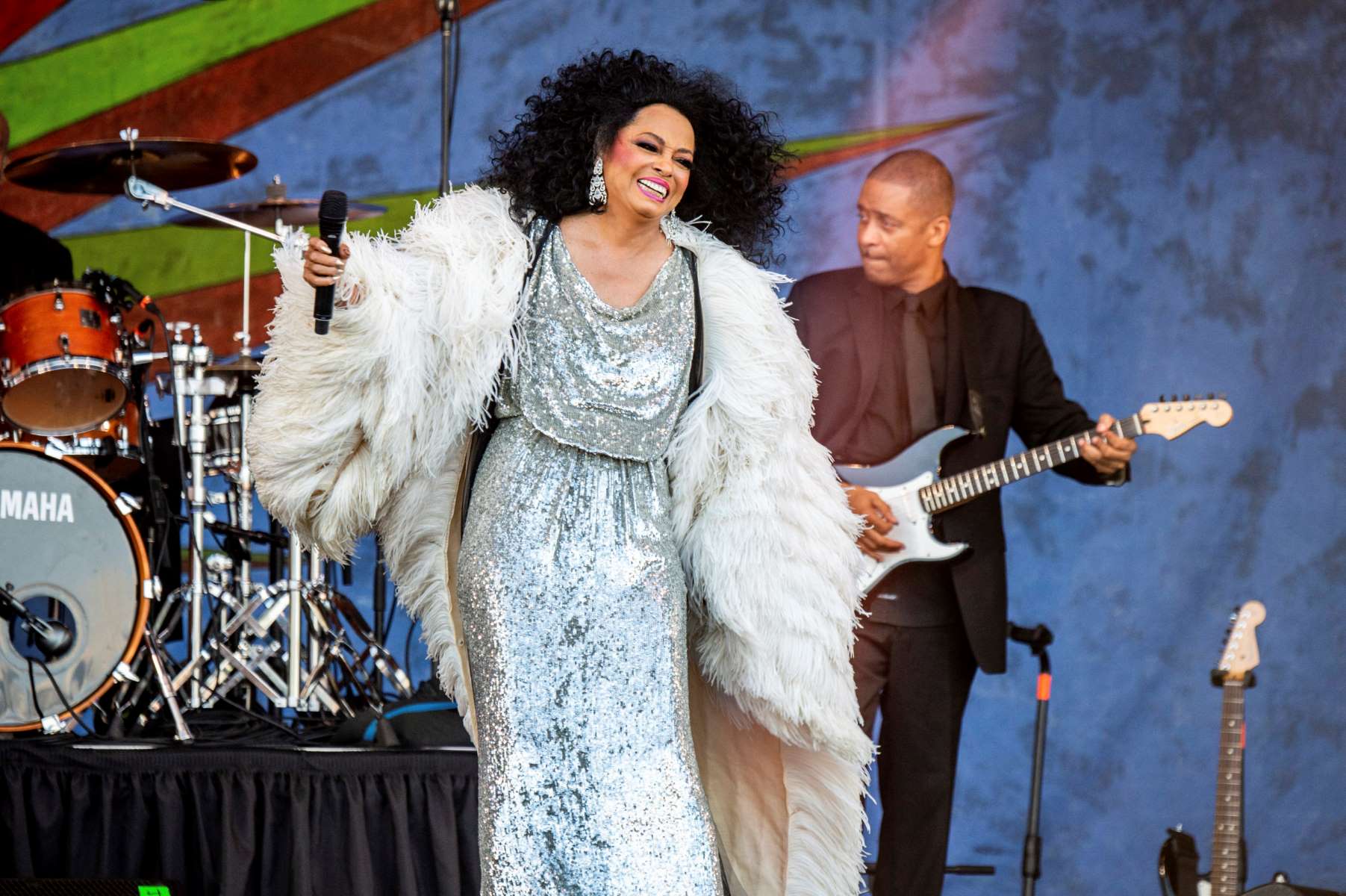Home>Production & Technology>Sound>Why Do British People Sound American When They Sing


Sound
Why Do British People Sound American When They Sing
Published: December 18, 2023
Discover why British singers sound American when they sing! Uncover the fascinating phenomenon of sound transformation in this intriguing musical exploration.
(Many of the links in this article redirect to a specific reviewed product. Your purchase of these products through affiliate links helps to generate commission for AudioLover.com, at no extra cost. Learn more)
Table of Contents
Introduction
When it comes to singing, it’s often been observed that British singers tend to sound distinctly American. From the soulful crooning of Adele to the rock-infused melodies of Freddie Mercury, many British artists seamlessly adopt an American accent when they belt out their tunes. This phenomenon has sparked curiosity and debate among music enthusiasts and linguists alike.
The influence of American music on British artists has been undeniable. From the early days of rock ‘n’ roll to the emergence of hip-hop and R&B, American music has inspired and shaped the sound of popular music around the world. As British musicians grew up listening to American music, it’s only natural that they would be influenced by the vocal styles and accents prevalent in those genres.
However, the reasons behind why British singers sound American when they sing go beyond mere musical influence. Linguistic factors play a significant role in shaping the way we pronounce words, and singing is no exception. When singers perform, they are often focused on delivering a clear and powerful vocal performance, which can lead them to adapt their pronunciation to match the sounds commonly associated with American accents.
Vocal techniques and stylistic choices also contribute to the transformation of British accents into American-sounding vocals. Singers may intentionally modify their pronunciation and employ specific techniques to achieve desired vocal qualities or to fit the musical genre they are performing. These conscious choices further blur the boundaries between accents and contribute to the perception of British singers sounding American.
Additionally, the role of media and globalization cannot be overlooked. With the rise of the internet and the increased accessibility of music from various cultures, global influences have seeped into the music industry. Artists from different countries now have exposure to a wider range of musical styles and accents, leading to a blending of cultural and linguistic elements in their music.
Psychological and cultural factors also come into play. Singers may unconsciously adopt an American accent while performing because they associate it with success and acceptance in the music industry. Moreover, audiences around the world, including American listeners, have grown accustomed to hearing music sung predominantly in an American accent, leading to a preference for singers who sound more familiar and relatable.
In this article, we will explore these various factors that contribute to British singers sounding American when they sing. By examining the influence of American music, the role of linguistics and vocal techniques, the impact of media and globalization, and the psychological and cultural aspects involved, we aim to shed light on this fascinating phenomenon and better understand the dynamics of accents in music.
The Influence of American Music on British Artists
Throughout history, American music has had a profound impact on British artists. From the Beatles’ fascination with rock ‘n’ roll to the British invasion of the 1960s, American musical styles have shaped and influenced the British music scene. As a result, many British singers have developed a strong affinity for American accents when they sing.
One of the key reasons for the influence of American music on British artists is the widespread popularity and cultural dominance of American genres such as rock, jazz, blues, and hip-hop. British musicians have been exposed to American artists from a young age, and their admiration for American musicians often leads them to emulate their sound and style. The impact of American music can be felt across generations, with artists like Eric Clapton, Mick Jagger, and David Bowie drawing inspiration from American icons like Chuck Berry, Elvis Presley, and Bob Dylan.
Moreover, the success of American artists in the global music industry has reinforced the perception that American accents are more marketable and commercially appealing. American pop culture, including music, has permeated the international scene, shaping the way audiences perceive music and influencing the aspirations of artists worldwide. As a result, British artists may consciously or unconsciously adopt American accents to cater to a broader audience and increase their chances of international success.
It is also worth noting that American music styles often emphasize distinct vocal characteristics, such as the soulful and bluesy inflections found in R&B and the powerful and belting vocals in rock and pop. These stylistic choices have become ingrained in the fabric of popular music culture, and British artists may adopt American accents to authentically convey these vocal traits and connect with the emotional weight associated with American music.
Additionally, the transatlantic musical exchange between the United States and the United Kingdom has fostered a sense of interconnectedness between the two countries’ music scenes. British artists have collaborated with American musicians, shared stages with them, and even recorded albums in the United States. This close interaction has further blurred the linguistic boundaries, influencing the way British artists sing and adopt certain vocal nuances.
Overall, the influence of American music on British artists cannot be understated. The exposure to American genres, the commercial viability of American accents, and the desire to authentically convey certain vocal styles all contribute to the phenomenon of British singers sounding American when they sing. This cross-pollination of cultures has enriched the global music landscape and created a diverse and dynamic range of vocal performances.
Linguistic Factors in Singing
When British singers adopt an American accent while singing, linguistic factors play a significant role in shaping their vocal delivery. Singing involves a different set of articulatory movements and vocal techniques compared to normal speech, and these factors can affect the pronunciation and accent of singers.
One key linguistic factor is the influence of the musical melody and rhythm on the pronunciation of words. In order to fit the melody and maintain the flow of the song, singers may make subtle adjustments to their pronunciation, including vowel sounds and consonant placement. This can lead to the adoption of certain American speech patterns, as American English often has different vowel and consonant qualities compared to British English.
Additionally, the need for clarity and intelligibility in singing can contribute to the modification of accents. Singers strive to deliver their lyrics in a way that is easily understood by listeners, and this often requires emphasizing certain sounds or altering the pronunciation of words to ensure clarity. In the process, elements of American pronunciation may be incorporated, as American English is often perceived as more easily intelligible and has a higher degree of standardization compared to British English.
Vocal techniques and the manipulation of vocal resonance can also influence how singers sound when performing. Many singing techniques, such as resonant placement, breath control, and vocal projection, aim to achieve a powerful, controlled, and resonant tone. In certain genres or styles of music, these techniques may naturally align with American vocal aesthetics, leading to a more American-sounding delivery.
Furthermore, the influence of the musical genre itself can shape linguistic factors in singing. Different genres have distinct vocal styles and characteristics, and singers may adapt their accents to fit the genre’s conventions. For example, when singing R&B or soul music, which originated predominantly in America, singers may adopt American pronunciation to authentically convey the emotional expressions and melodic nuances associated with these genres.
It’s important to note that linguistic factors in singing are not limited to British singers adopting American accents. Singers from other non-American English-speaking countries have also been observed to modify their accents to align with American vocal styles, highlighting the global influence of American music and its impact on vocal delivery.
In summary, when British singers sing in an American accent, linguistic factors such as melodic adjustments, clarity of pronunciation, vocal techniques, and genre influences all contribute to the transformation of their accents. Singing requires specific articulatory movements and stylistic choices that can shape the way singers pronounce words and convey their vocal performances.
Vocal Techniques and Stylistic Choices
Vocal techniques and stylistic choices play a pivotal role in shaping the way British singers sound when they adopt an American accent while singing. These techniques and choices relate to various aspects of vocal production, including pronunciation, intonation, inflection, and overall vocal style.
One technique that influences the accent of singers is the adjustment of vowel sounds. Vowel pronunciation can significantly vary between British and American English. By modifying vowel sounds to match the characteristics of American English, such as the pronunciation of “r” sounds or diphthongs, singers can achieve an American-style delivery. This modification allows them to seamlessly blend into American-accented music genres while maintaining a consistent and authentic vocal performance.
Emphasis on certain consonants is another vocal technique that contributes to the American-sounding accents of British singers. For example, the pronunciation of “t” and “d” sounds in American English tends to be more aspirated and pronounced compared to British English. Singers may intentionally emphasize these consonants to enhance the clarity and impact of their lyrics, thereby amplifying the American accent in their performances.
Moreover, stylistic choices play a significant role in shaping the overall vocal delivery. Different musical genres favor specific vocal styles, and singers often adopt these stylistic choices as part of their artistic expression. For example, if a British singer is performing in a genre traditionally associated with American artists, such as country or blues, they may consciously adopt an American accent to stay true to the genre’s authenticity and connect with the expectations of the audience.
In addition to vocal techniques and stylistic choices, singers may also draw inspiration from specific American artists. Admiration for American vocalists can influence the way British singers approach their performances. They may study the nuances of their favorite American singers’ accents and attempt to replicate certain vocal characteristics, leading to the adoption of an American accent in their own singing.
It is important to note that these vocal techniques and stylistic choices are not unique to British singers. Singers from various cultural backgrounds often adapt their accents and vocal styles to match the expectations of a particular genre or to pay homage to their favorite artists. The fluidity and versatility of accents in music allow singers to explore different vocal personas and create unique performances that resonate with listeners.
Ultimately, it is the combination of vocal techniques and stylistic choices that contribute to the perception of British singers sounding American when they sing. From modifying vowel sounds and emphasizing specific consonants to embracing the stylistic norms of certain music genres, singers tap into a range of techniques and choices to create their own distinct vocal identities.
The Role of Media and Globalization
The rise of media and globalization has had a profound impact on the way accents are perceived and adopted in music. The increased accessibility of music from different cultures, coupled with the global reach of the media, has contributed to the blending of accents and the phenomenon of British singers sounding American when they sing.
One significant factor is the influence of the music industry and media representation. American music and culture have long been dominant forces in the global music scene. The success and popularity of American artists have set the standard for what is considered mainstream and commercially viable. As a result, British artists, like many others around the world, may feel compelled to adopt an American accent or style in order to appeal to a wider audience and increase their chances of success.
The role of media goes beyond the music industry itself. Movies, television shows, and the internet have made American accents familiar and ubiquitous to audiences worldwide. American English has become a universal accent in the entertainment industry, and this exposure has influenced the way people perceive and interpret music sung in an American accent. Audiences, including American listeners, have grown accustomed to hearing songs predominantly sung in an American accent, further fueling the preference for singers who sound more familiar and relatable.
Globalization has also played a significant role in the blending of accents in music. The internet and social media have broken down geographical barriers, allowing musicians and fans to connect on a global scale. This has led to increased exposure to music from different cultures and has facilitated cross-cultural collaborations. As artists from diverse backgrounds come together, they bring their own accents and vocal styles, resulting in a fusion of linguistic influences. The boundaries between accents become fluid, as artists draw inspiration from one another and create unique blends of vocal performance.
Furthermore, the ease of access to different musical styles and genres has expanded the musical palette for artists. British singers, like musicians from other non-American English-speaking countries, have had exposure to a wide range of American music genres since childhood. Growing up listening to American music has shaped their musical preferences and influences their vocal delivery. Singers may intentionally adopt an American accent out of admiration for the sounds and vocal styles prevalent in American music.
Overall, the media and globalization have played a significant role in the perception and adoption of American accents in music. The dominance of American culture in the entertainment industry, the familiarity of American accents to global audiences, and the cross-cultural collaborations facilitated by globalization have all contributed to the phenomenon of British singers sounding American when they sing. The blending of accents in music is a testament to the interconnectedness and cultural exchange that characterizes the modern music landscape.
Psychological and Cultural Factors
Psychological and cultural factors play a significant role in understanding why British singers often sound American when they sing. These factors delve into the individual and collective mindset of the artists and the cultural contexts in which they operate.
Firstly, there is a psychological component at play wherein singers may unconsciously adopt an American accent due to the association of success and acceptance with American vocal styles. The music industry has historically favored American artists, as they have consistently achieved commercial success and global recognition. British singers, like artists from other countries, may adopt an American accent to align themselves with this perceived pathway to success and gain greater acceptance in the industry.
Moreover, cultural factors play an important role in the adoption of American accents by British singers. American popular culture, including music, movies, and television, has a pervasive influence on a global scale. This cultural dominance has created a level of familiarity and acceptance of American accents as a prestigious and desirable trait within the entertainment industry. British singers may consciously or subconsciously adopt an American accent to fit into this cultural framework and appeal to a wider audience.
Cultural assimilation and the desire for a sense of universality also contribute to the adoption of American accents. Since American English is widely understood and spoken globally, British singers may see the American accent as a means of connecting with a wider range of listeners beyond their national borders. Singing in an American accent allows for a broader appeal and facilitates communication with a global audience who may be more familiar with American cultural references.
Furthermore, singing in an American accent can be seen as a way to tap into the emotional resonance and cultural shorthand associated with American music. Certain genres, such as blues, jazz, and rock, have strong connections to American culture and history. British singers who perform in these genres may adopt an American accent to authentically convey the emotional and cultural roots of the music, aligning themselves more closely with the genre’s origins.
The influence of cultural homogenization and globalization also plays a role in the adoption of American accents. In an increasingly interconnected world, cultural boundaries are becoming more blurred. As music from different cultures is shared and consumed on a global scale, artists have more exposure to various accents and vocal styles. This exposure allows musicians to experiment with different accents and incorporate diverse vocal influences into their performances, leading to a convergence of accents in music.
In summary, psychological and cultural factors contribute to the prevalence of British singers sounding American when they sing. The association of success and acceptance with American vocal styles, the cultural dominance of American popular culture, the desire for universality and broader appeal, the connection to specific genres, and the influence of globalization all influence the adoption of an American accent. This phenomenon highlights the complex interplay between individual aspirations, cultural influences, and the globalized nature of the music industry.
Conclusion
The phenomenon of British singers sounding American when they sing is a multi-faceted and intriguing aspect of the music industry. The influence of American music on British artists, linguistic factors in singing, vocal techniques and stylistic choices, the role of media and globalization, and psychological and cultural factors all contribute to this phenomenon.
American music has had a lasting impact on British artists, with the popularity of genres like rock ‘n’ roll, jazz, and blues shaping their musical style and predisposing them to American vocal aesthetics. Linguistic factors, including melodic adjustments, clarity in delivery, and genre-specific pronunciation, also play a significant role in the adoption of American accents in singing. Vocal techniques and stylistic choices allow artists to modify their accents to match the conventions of a particular genre or to emulate their favorite American artists.
The role of media and globalization cannot be underestimated. The dominance of American culture in the entertainment industry and the global reach of American accents through media have created familiarity and desirability for singers to sound American. Globalization has facilitated cross-cultural collaborations and the exchange of musical influences, leading to accents blending and evolving in music from various regions.
Psychological factors, such as the association of success with American vocal styles, and cultural factors, including the desire for universality and the emotional resonance of American music, also contribute to the adoption of American accents by British singers. The aspirations of artists to connect with a global audience and the impact of cultural homogenization further fuel the prevalence of British singers sounding American when they sing.
In conclusion, the phenomenon of British singers adopting American accents when they sing is a result of various interconnected factors. The influence of American music, linguistic considerations, vocal techniques and stylistic choices, media and globalization, and psychological and cultural influences all contribute to the blending and evolution of accents in music. This phenomenon highlights the dynamic nature of the music industry, where accents serve as tools for artistic expression and connection with audiences worldwide.











